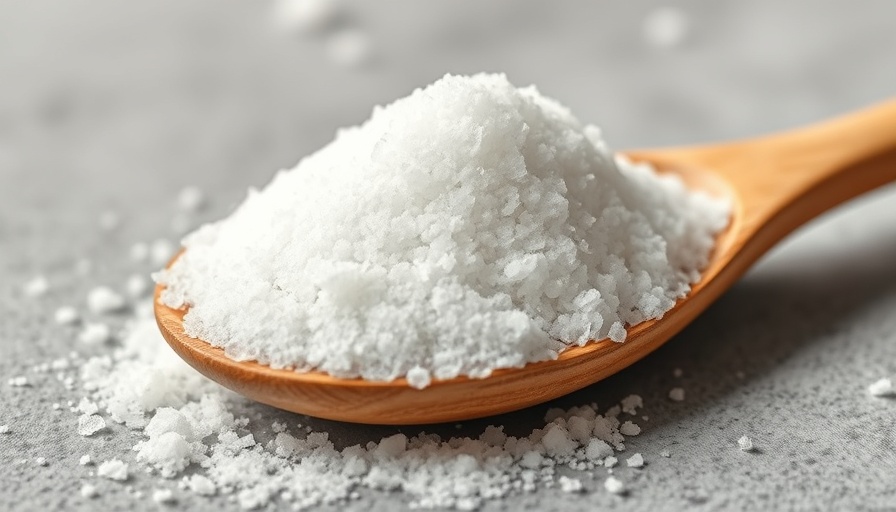
New Findings on Erythritol: What You Should Know
In a world where many consumers reach for zero-calorie sweeteners like erythritol, a recent study from the University of Colorado-Boulder raises some red flags about its safety. Erythritol, often labeled as a natural alternative to sugar, is becoming increasingly popular for sugar-free products. However, emerging research suggests that this seemingly innocent sweetener could have serious implications for health, particularly regarding stroke risk.
The Alarming Effects on Brain Health
The study published in the Journal of Applied Physiology found that erythritol could disrupt brain blood vessel function significantly. Researchers noted alarming changes in specialized cells known as human brain microvascular endothelial cells, which line blood vessels in the brain. When these cells were exposed to erythritol at concentrations similar to those found in the bloodstream after consuming artificially sweetened beverages, detrimental effects became evident: a 75% spike in harmful free radicals, and reduced levels of nitric oxide, critical for keeping blood vessels relaxed. Most concerning was erythritol's role in impairing the brain's natural ability to prevent blood clots.
Understanding the Risks
This research revealed that erythritol amplified clot-promoting proteins while causing a drop in clot-busting enzymes. Consequently, if blood vessels are less open and more prone to clots, this heightens the risk of ischemic strokes, where a clot blocks blood flow to the brain—a vital connection to understand for anyone relying heavily on sugar substitutes.
A Call for Moderation in Sweetness Intake
While previous studies have linked erythritol to cardiovascular issues, this latest finding emphasizes the need for caution. Though erythritol has been marketed as a healthful sugar alternative since its FDA approval in 2001, health experts are advised to consider moderation. Relying solely on sugar substitutes like erythritol may not be the best approach to health. Instead, individuals should prioritize a balanced diet, focusing on reducing overall sweetness intake instead.
Moving Forward
As consumers, it’s essential to remain informed and critically evaluate the sweeteners we choose. With many people believing that sugar-free options equate to healthier choices, this new information highlights the importance of staying vigilant about what we consume. Embracing healthier lifestyles embodies not just the choices we make but also our awareness of hidden risks associated with our daily habits.
 Add Row
Add Row  Add
Add 




Write A Comment